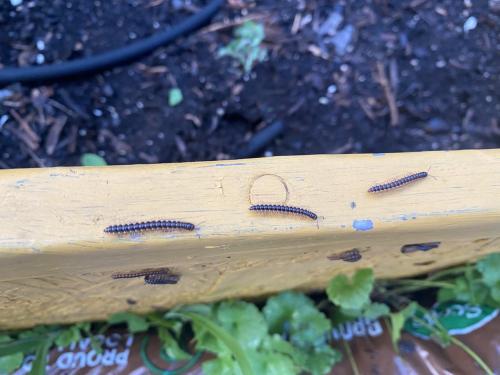
Gschnettler said:I have hundreds of not thousands of inch worms in my raised beds where I am growing tomatoes. Some of these worms have decided to come into my house. I have never had this problem before.
Are they dangerous to my plants?
What typically attracts them to your yard?
Is there a way to safely get rid of them?
Gschnettler said:Ok, well maybe they are millipedes or centipedes. Any advice on what to do about them? Should I be concerned? Or just let them be? They were all over my garage door today. It was gross.